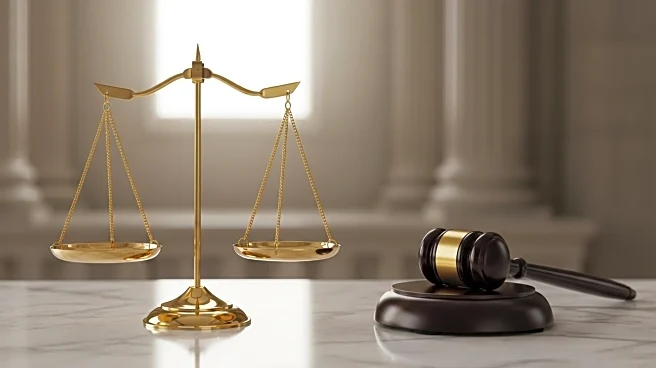What's Happening?
President Trump has requested the Supreme Court to uphold his executive order that aims to restrict birthright citizenship for children born to parents who are in the United States illegally or temporarily. This appeal follows a series of lower court decisions that have blocked the order, citing violations of the 14th Amendment. The administration argues that the order is crucial for border security and aims to prevent conferring citizenship on individuals deemed unqualified. The Supreme Court's decision on whether to take up the case is expected in the coming months, with arguments likely to occur in late winter or early spring.
Why It's Important?
The outcome of this case could significantly impact U.S. immigration policy and the interpretation of the 14th Amendment, which has historically guaranteed citizenship to all individuals born on U.S. soil. If the Supreme Court upholds the order, it could lead to a shift in how citizenship is conferred, affecting hundreds of thousands of individuals and potentially altering the demographic landscape of the country. This decision could also set a precedent for future executive actions on immigration and border security.
What's Next?
The Supreme Court's decision on whether to hear the case will be closely watched by legal experts, immigration advocates, and political leaders. If the court decides to take up the case, it will likely lead to extensive legal debates and public discourse on the constitutional implications of the executive order. The administration's appeal is part of a broader strategy to enforce stricter immigration controls, which may face further legal challenges and opposition from civil rights groups.










